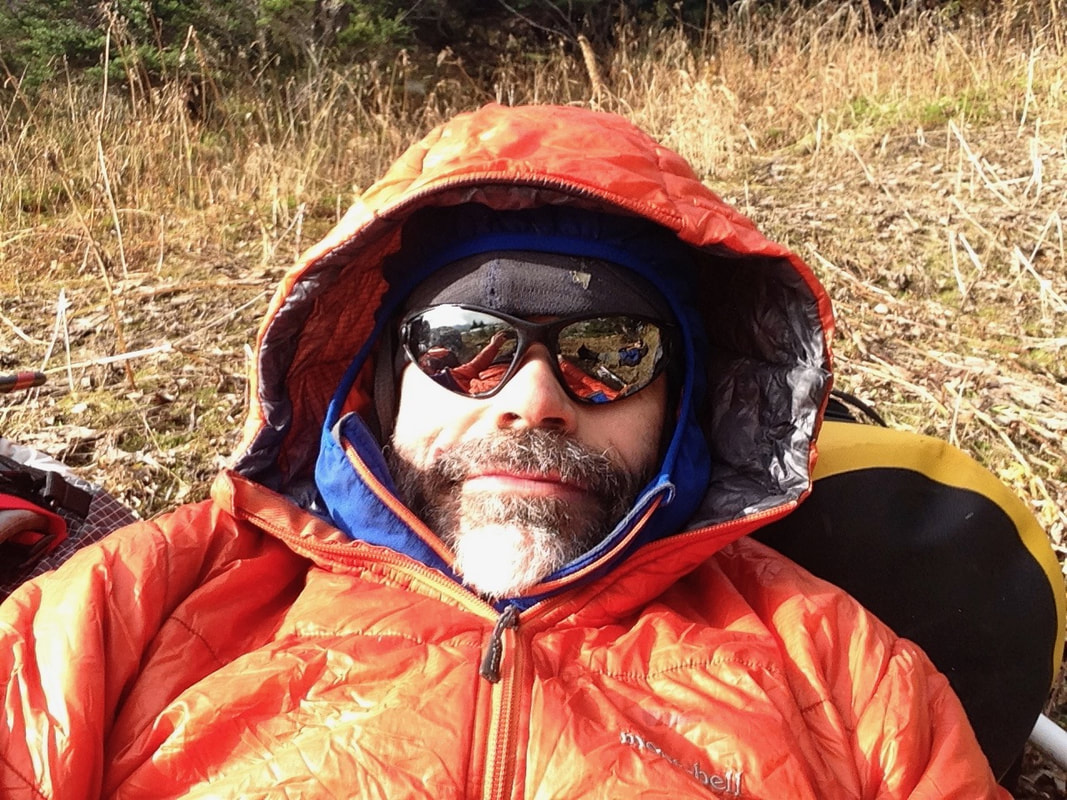I’m interested in the ways climate change and climate variability affect landscapes, mainly through fire and vegetation change. These require multi-scale understanding of global-to-local gradients of water and energy to which plants and fuels response, and ecohydrology is the best framework for doing that because it can clearly and simultaneously account for both the ecological responses to hydrological variations and the hydrological responses to ecological variation.
What are your undergraduate and graduate degrees in?
I have an undergraduate degree in terrestrial ecology and graduate degrees in land resources and environmental science and something presumptuously titled “forest ecosystem analysis”.
How did you arrive at working in/thinking about ecohydrology?
I got my start trying to figure out how an uncommonly diverse assemblage of desert rodents responded to episodic pulses of water (El Niño years) and drought (La Niña Years), but it didn’t occur to me then that was anything other than pure Hutchinsonian ecology. Being a liability-minded kind of guy and generally watching out for me, my undergraduate adviser suggested I give up on rodents and look at trees, because you don’t catch hanta virus from trees. I had the good fortune to land a master’s project doing tree-ring based fire history in the Greater Yellowstone Ecosystem, where subalpine forests give way to lower elevation Douglas-fir woodlands. In that system, to understand why fires manifest as relatively rare crown fires in subalpine forest and more frequent fires in the lower elevation forests, it helps greatly to think about the energy and water balances that drive the vegetation and fuels there. The role of drought is a richer scientific endeavor if we think of drought not as an index relative to a mean, but instead a continuous process. It scales more easily that way. And that leads to thinking of fire as an ecohydrological process. Another observation that queued up ecohydrology, though I didn’t know the word at the time, was that the Douglas-fir in that system put on early wood (the light part of a tree ring) in spring and early summer, and then unlike their well-watered cousins in the western Cascades, they transition fairly abruptly to late wood (the dark part of a tree ring) and then quickly go dormant. The key to understanding the regional difference in ring formation is the seasonal timing of snowmelt and subsequent potential evapotranspiration (PET) that exceeds the water available for actual evapotranspiration (AET). I found out about this in the ecological literature, but quickly discovered that hydrologists (or at least some hydrologists) were used to thinking about those differences from the perspective of “Where’d the water go?, not “Why do the plants do what they do?”.
What do you see as an important emerging area of ecohydrology?
Because it provides a quantitative and predictive approach to understanding the fluxes of water and energy in vegetation, ecohydrology can play an important role in developing realistic scenarios of climate change impacts on ecosystems. I think this is especially key where climate variability and climate change interact to drive both the long-term trends but also the extremes to which eocsystems respond. The uncertainty in future landscape trajectories could be considerably reduced by replacing some of the stochastic elements in vegetation models with more deterministic, if complex, ecoydrological gradients. The next logical step is trialing adaptation options in forests based on ecohydrology knowledge of different trajectories in different parts of landscapes.
Do you have a favorite ecohydrology paper? Describe/explain.
Around 2004, I spent longer than I want to admit to this community on “A scale invariant coupling of plants, water, energy and terrain”, (Milne, Gupta, and Restrepo, Ecoscience, 2002) because it seemed to provide a key framework for my attempts to explain both variation in tree growth responses in mountain landscapes AND fire responses to climate across the western U.S.. It hinted at the ability to go from processes affecting a single tree to those affecting the fuels in an entire ecoregion, and for me, that scale invariance was transformative in my thinking. I still don’t think I have adequately linked what I study and publish on to those concepts, but I’ve spent a decade trying to create the historical and future variables described in that paper for my own purposes. That has been both productive and entertaining.
What do you do for fun (apart from ecohydrology)?
I Nordic ski race in winter, and train for skiing in the summer by mountain running, roller skiing, and other pursuits not considered odd in Scandinavia, and increasingly less odd in Alaska. I have no TV, a few bikes, and I prefer not to discuss how many pairs of skinny skis are in my garage. In my defense, they are not all mine, but that is in part because if my family didn’t ski, they would probably see less of me. Some people restore cars in their garages; I wax skis. Lots and lots of skis. I also have a garden that I chase moose out of regularly. One of the benefits of all that skiing and running is eating, so I cook a lot too – for my wife and me, food is entertainment, though I am not sure our two daughters always agree with that. There is an infinite amount of fun to be had in Alaska, as long as you recognize occasionally you’ll be wet and cold. But ecohydrologists know about that, right?!

 RSS Feed
RSS Feed